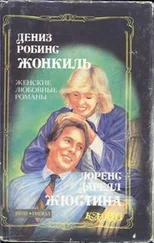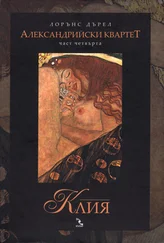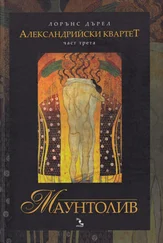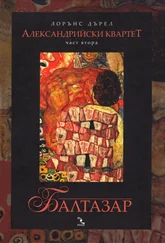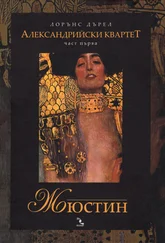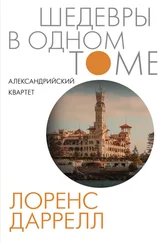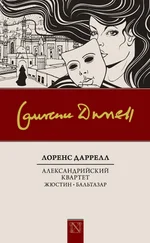Лоренс Даррелл - Prospero's Cell
Здесь есть возможность читать онлайн «Лоренс Даррелл - Prospero's Cell» весь текст электронной книги совершенно бесплатно (целиком полную версию без сокращений). В некоторых случаях можно слушать аудио, скачать через торрент в формате fb2 и присутствует краткое содержание. Жанр: Проза, на английском языке. Описание произведения, (предисловие) а так же отзывы посетителей доступны на портале библиотеки ЛибКат.
- Название:Prospero's Cell
- Автор:
- Жанр:
- Год:неизвестен
- ISBN:нет данных
- Рейтинг книги:4 / 5. Голосов: 2
-
Избранное:Добавить в избранное
- Отзывы:
-
Ваша оценка:
- 80
- 1
- 2
- 3
- 4
- 5
Prospero's Cell: краткое содержание, описание и аннотация
Предлагаем к чтению аннотацию, описание, краткое содержание или предисловие (зависит от того, что написал сам автор книги «Prospero's Cell»). Если вы не нашли необходимую информацию о книге — напишите в комментариях, мы постараемся отыскать её.
Prospero's Cell — читать онлайн бесплатно полную книгу (весь текст) целиком
Ниже представлен текст книги, разбитый по страницам. Система сохранения места последней прочитанной страницы, позволяет с удобством читать онлайн бесплатно книгу «Prospero's Cell», без необходимости каждый раз заново искать на чём Вы остановились. Поставьте закладку, и сможете в любой момент перейти на страницу, на которой закончили чтение.
Интервал:
Закладка:
Zarian, to whom the subject of wine is sacred, does not find the story in very good taste, one can see. Yet he suffers it admirably; and later upon the dazzling white terrace, sipping his cognac, he confesses that he is developing a taste for retzina. 'It is not to be drunk alone, but with meat and vegetables cooked in the peasant manner. Lamb with onions, egg-plant, potatoes, and that red sauce which you all know. Then it tastes like a divine turpentine.'
'But speaking of intoxicating drinks,' says Theodore, 'I wonder, Count, if you have remarked that arbutus berries are among the things which can also intoxicate. During the campaigns of Macedonia during the last war I noticed that on several occasions battalions of our troops became quite drunk through eating the berries of the shrub. In some cases their wits seemed turned by the habit. I often wonder whether in Xenophon the mysterious outbreak of madness among the troops could have come from the same cause.'
It is ten o'clock and the moonlight is dazzling. Across the valley I can see the shallow glare of Spiro's headlamps flash as he brings N. to me. We are off to explore the caves near Paleocastrizza and spend the night in the small hotel there. The demented honking with which Spiro always announces his approach sounds sweet and muffled across the silver trees.
Loath to disrupt the speculative calm of my three philosophers I get up and say good-bye. The Count insists on accompanying me the length of the terrace to send a message to N. Faint interior preoccupations stir behind his composed features. 'And you are coming for the vintage don't forget,' he says. 'Bring her with you. It is a time for women.' Then he adds almost apologetically, 'We do not consider them enough perhaps.' And I know all at once that his thoughts have turned to the Roman nymph standing in the rotunda with the leaves turning over around her feet. I would like to say something that was not redundant or out of place but can find no words. The very fabric of this candid and beautiful landscape forbids it. I shake his hand and walk down the long avenue to the gates where the great car stands panting with Spiro jovial behind the wheel.
The western waters of Paleocastrizza will be icy cold to-night; and under the castle of St. Angelo the silver race will be combing out its long strands. Soon there is to be a war.
7·4·38
Coming over the crest of the hill behind Kastellani we see that a dance is in progress. From the grassy glades below, the shadow of the olive-trees is broken by clouds of dust, and the afternoon silence by the terrific giggling of donkeys — like pantomime comedians. Smoke from the fires, upon which whole kids are turning upon spits, rises lazily. Through the hum of human voices one can hear the scratch and squeak of the violin and guitars, and the hollow beat of the drum, resonant and vulgar as a full stomach struck with the palm of the hand. 'Ah look,' says N. 'Just look at the dancers.'
A multi-coloured circle of flowing head-dresses and skirts moves slowly about the axis of the musicians, reversing and advancing with slow rhythmic measures. In the centre of the circle, moved by the current, but free, the young men dance, each improvising his variations upon the theme, hand on hip, head thrown back, face devout and abstract. In the luminous shadows among the trees the crowds are laughing and chattering, the pedlars of ikons, talismans, or bread and sweets, resting for a while upon the holes of the olives in expressive poses. Whiffs of roasting lamb and wine come across the clearing where the old men and women are sitting in groups upon the grass like birds, eating and drinking. Father Nicholas is there in his blue trousers watching his younger son dancing, all dressed in white, with a fine new straw hat upon his square head. Sandos and his daughter are sitting under an olivetree. Socrates and Demosthenes are eating themselves silly by the turning lambs. Several of the girls from our northern village are in the outer circle; one recognizes them by the sobriety of their costume — black clothes with white head-dress. Here districts still keep their distinctions of head-dress; and in Corfu the women of Gastouri are justly renowned as the most beautiful and the most colourful. Here in the circle of dancers you can see the famous full pleated skirt of shot silk and the old-fashioned bodice, under a bolero heavy with gold stitching — the crust of embroidery. Gold drops dangle at the ear, while the coiffure is a marvellous erection — built up towards the back of the head in tiers, worked over little cloth pads, and tied with red ribbon. A lace-edged handkerchief turned back from the crown, frames the handsome olive face.
'Ah,' says Theodore with pleasure, 'it is a star-dance, called the Corcyrean Dance. As you may know I have theories about the origin of these dances, some of which are very ancient.'
The multi-coloured wheel spins and reverses, spins and reverses, while the lone-moving satellites plot out their intricate measures. The fiddlers have their heads together in a conspiracy of rhythm. The two violins drizzle steadily. The son of Father Nicholas throws his head back from time to time and gives a short excited cry of pleasure as his deft feet in their heavy boots glide and spin upon the green turf, now being beaten to dust by the moving feet of the women. Strange associations come to mind. The wheel of the heavens. The repeating tread of the women, as if caught in the labyrinth of the rhythm, the measure repeating itself, multiplied only by the free improvisations of the men. The mating dance of birds.
'All the circular ones I call star dances,' says Theodore. 'I read somewhere that dancing originated in a desire to imitate the movement of celestial bodies — the early clock as it were.'
The boy in white is dancing now with the faultless inevitability of someone for whom nothing else exists. His head is thrown back and his sharp nostrils dilated. He has thrown his hat out of the circle, to roll unerringly at Father Nicholas's feet under the olives. His brown hair rises and falls on his head. One hand is at his hip, upon the red sash he is wearing; the other is posed at full length like that of a conductor, expressing every subtlety of gesture and balance. He is dancing before the girl in yellow and blue — a swarthy Gastouri beauty — with heavy limbs. Her face is flushed as he reaches out the handkerchief for her to touch. The women, linked together, struggle and cry like gulls. Nearer he dances and nearer. He does not look at her but you feel at once a correspondence, a power, flowing between them. For a moment her face looks panic-stricken and dazed; and then she reaches out her strong brown paw and takes the hem of the handkerchief between her fingers. The music rolls over them. They rotate, buried in the rhythms, latched together by this fateful contact, revolving together in the communion of sound and action.
Father Nicholas has been watching them with a strange mixture of pride and resentment in his face. Of course as a northerner he should not be making advances to a Gastouri girl. Seeing us, however, his smiles reappear and he hobbles across to greet us as quickly as his rheumatism allows. When he speaks I observe that his breath is heavy with wine. 'The young are only young once,' he tells us several times in a voice deepened an octave by red wine. Kastellani is his favourite brew. 'When they dance all the sins of the world dance with them. When I was young. . ' But the uproar is too great for him to be allowed to reminisce. We are presented in quick succession to the mayor, two policemen, and three monks (who timidly hide their glasses of wine behind a tree before coming across to shake hands). N. begins making her slow painful notes for paintings, a donkey with panniers, an old woman, a policeman lying asleep under a tree with his tunic unbuttoned, a man making a drunken political speech which is completely inaudible above the music.
Читать дальшеИнтервал:
Закладка:
Похожие книги на «Prospero's Cell»
Представляем Вашему вниманию похожие книги на «Prospero's Cell» списком для выбора. Мы отобрали схожую по названию и смыслу литературу в надежде предоставить читателям больше вариантов отыскать новые, интересные, ещё непрочитанные произведения.
Обсуждение, отзывы о книге «Prospero's Cell» и просто собственные мнения читателей. Оставьте ваши комментарии, напишите, что Вы думаете о произведении, его смысле или главных героях. Укажите что конкретно понравилось, а что нет, и почему Вы так считаете.

